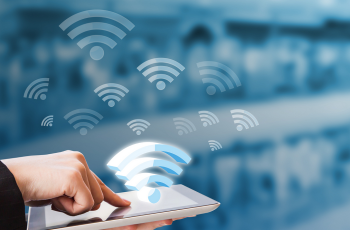In an era where environmental sustainability is increasingly important, smart home technologies offer a promising avenue for energy savings. These innovations not only contribute to reducing carbon footprints but also provide homeowners with significant cost savings. Here, we explore the various smart home technologies that can enhance energy efficiency and the benefits they bring.
Harnessing Solar Hot Water Heating
Incorporating solar hot water heating systems is a game-changer in the pursuit of energy efficiency. These systems utilize renewable energy to fulfill household hot water needs, significantly reducing reliance on conventional energy sources. By harnessing the power of the sun, solar hot water heating systems not only contribute to lower energy bills but also mitigate environmental impact, making them a valuable addition to any energy-efficient home.
Smart Thermostats
Automated Climate Control
Smart thermostats are a cornerstone of energy-efficient homes. These devices learn homeowners’ schedules and preferences, automatically adjusting temperatures to optimize comfort and energy use. For instance, a smart thermostat can lower the heat when the house is empty and warm it up just before occupants return. This ensures minimal energy is wasted on heating or cooling an empty home.
Remote Access and Monitoring
The ability to control and monitor home temperatures remotely via smartphone apps allows homeowners to make adjustments on the go. This feature ensures that energy is not wasted when plans change unexpectedly, such as staying late at work or going on a spontaneous trip.
Smart Lighting Systems
Adaptive Lighting
Smart lighting systems, such as those using LED technology, offer significant energy savings by adjusting the lighting based on the time of day and occupancy. These systems can dim or turn off lights in unoccupied rooms and adjust the brightness according to natural light levels, thus reducing unnecessary electricity use.
Voice and App Controls
Integration with voice assistants like Amazon Alexa and Google Assistant allows for easy control of lighting systems. Homeowners can turn lights on or off, adjust brightness, and even change colors using voice commands or smartphone apps, ensuring energy-efficient use without compromising convenience.
Energy-Efficient Appliances
Smart Appliances
Modern appliances are becoming increasingly energy-efficient. Smart refrigerators, washing machines, and dishwashers can optimize their operations based on usage patterns. For example, a smart refrigerator can adjust its cooling cycles based on the frequency of door openings, while a smart washing machine can choose the most energy-efficient wash cycle based on load size.
Energy Monitoring
Many smart appliances come with energy monitoring features that provide real-time data on electricity consumption. This transparency helps homeowners understand their energy usage and identify opportunities for further savings.
Smart Plugs and Power Strips
Eliminate Standby Power
Smart plugs and power strips are effective tools for reducing energy consumption from devices that consume power even when turned off, known as standby power or “phantom load.” These smart devices can cut off power to electronics when they are not in use, ensuring that no energy is wasted.
Schedule and Automation
These devices often come with scheduling features that allow homeowners to set specific times for devices to turn on and off. Automation ensures that devices only consume power when necessary, further enhancing energy efficiency.
Renewable Energy Integration
Solar Panel Systems
Integrating smart home technologies with renewable energy sources like solar panels can maximize energy savings. Smart inverters and battery storage systems can manage the energy produced, storing excess energy for later use and optimizing consumption based on peak and off-peak hours.
Energy Management Systems
Advanced energy management systems can analyze energy usage patterns and suggest improvements. These systems can coordinate with various smart home devices to optimize overall energy consumption, ensuring maximum efficiency and savings.
Conclusion
Smart home technologies are transforming the way we manage energy consumption, making it easier and more efficient to save energy and reduce costs. From smart thermostats and lighting systems to energy-efficient appliances and renewable energy integrations, these innovations offer practical solutions for creating more sustainable homes. As technology continues to advance, the potential for energy savings will only grow, making smart homes an essential part of our future.



